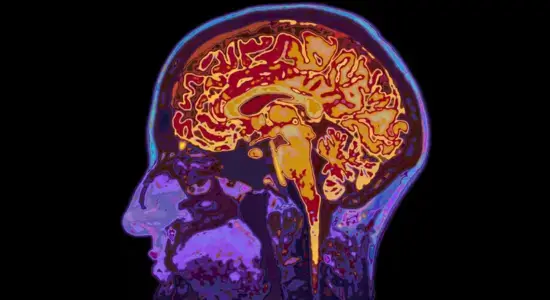Understanding the Age When Brain Aging Accelerates: Key Research Insights
Alright, Fact Fun fam! Sukhi here, and today we’re diving into something that might make you go “Wait, already?!” We’re talking about when our brains, those amazing supercomputers in our heads, start hitting the fast-forward button on aging. And guess what? It seems like there’s a specific time frame, a “critical window,” when this happens. Let’s get into it!

So, most of the time, aging feels like a slow creep, right? Like, you don’t magically wake up on your 60th birthday looking like you’ve aged overnight (though some mornings might feel that way!). But when it comes to our brains, some smart folks did a study and found that there might be a point where things speed up, and then slow down again. Intriguing, huh?
These researchers, bless their brainy souls, looked at a whole bunch of brain scans – over 19,000 people, can you believe it? They used this fancy thing called fMRI, which basically lets them see what’s going on inside your head while it’s working. What they found was pretty interesting.
According to their findings, this rapid brain aging seems to kick off around the age of 44. Yep, you heard that right! From that point until about 67 years old, the complex connections in our brains start to break down at a faster rate. Think of it like the wires in your old headphones getting a bit tangled and not working as smoothly. After 67, the brain still ages, but it seems to chill out a bit and the aging process plateaus by the time someone hits their 90s.
But wait, there’s more! These super sleuth scientists didn’t just look at the scans. They also wanted to know why this was happening. So, they dug into what was going on at a tiny, molecular level in the brain during this speedy aging phase. They were looking for clues, like biomarkers and which genes were being active.
And guess what they found? They think the main culprit behind this accelerated brain aging is something called neuronal insulin resistance. Now, I know that sounds like a mouthful, but basically, it means the brain cells aren’t using energy as efficiently as they used to.
One of the lead researchers, Lilianne R. Mujica-Parod, put it this way: “We’ve identified a critical midlife window where the brain begins to experience declining access to energy but before irreversible damage occurs, essentially the ‘bend’ before the ‘break’.” Think of it like that moment when you start to feel your car struggling to get up a hill, but it hasn’t completely broken down yet.
But hold on, it gets even more interesting! Because they figured out why this might be happening, they also found a potential way to help! Their research pointed to a protein that could protect against this rapid aging. This protein helps transport things called ketones into the brain. Normally, our brains use glucose (sugar) for fuel, but in a pinch, they can use ketones, which come from breaking down fats, and they can do it without needing insulin.
Mujica-Parod explained that during this midlife period, brain cells are stressed because they’re not getting enough fuel. But they’re still alive and kicking! So, the idea is that giving the brain an alternative fuel source, like ketones, during this “critical window” might help it work better.
They even tried this out in a small study with people of different ages. Some got ketones, some got glucose, and they did more brain scans. Interestingly, ketones didn’t make a huge difference for folks in their 60s and 70s, and only a little bit of difference for those in their 20s and 30s.
But guess who saw the biggest benefits? You guessed it – the people in that midlife “critical window,” the 40 to 49-year-olds!
Now, Fact Fun always keeps it real with you guys. This was a small study, so we need more research with more people to see if this could actually become a way to slow down brain aging and maybe even prevent diseases that mess with our brains.
Still, one of the researchers, Botond Antal, called these results a “paradigm shift” in how we think about preventing brain aging. Instead of waiting until we start noticing problems with our memory or thinking, we might be able to spot people at risk early on and do something about it during this crucial middle age.
So, there you have it, folks! It looks like our brains might start aging a bit faster around the age of 44, and this could be a key time to think about keeping them healthy. What do you guys think about this? Let Fact Fun know in the comments!






